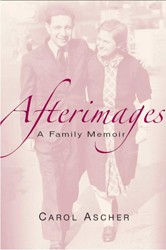It is tempting to call Seymour Krim a kvetch for all seasons, but the pieces in this collection indicate that he was definitely a man of his time and place — Greenwich Village during the decades following World War II.
This volume brings together several highly individualistic documents of an era that is all too easily caricatured and dismissed, showing the surprising range of views that were possible (if not popular) within the bounds of 1950’s and 1960’s hipness, especially in matters of race and ethnicity. Instinctively drawn to Harlem for its authenticity, Krim is quick to condemn both the social dysfunction that underlay much of black jazz culture and his white contemporaries who were even quicker to romanticize it. And he was deeply disturbed by the debasing effect of black English on the language in general.
On the personal level, these “rants and regrets” document that it wasn’t easy being Krim. He was consumed by a sense of inadequacy, raging with varying degrees of effectiveness against a panoply of luminaries whose shadows eclipsed his own light, from the Village intellectual Milton Kronsky to Norman Mailer and Mario Puzo.
Concerns about his own Jewish identity provide a repeating bass line under Krim’s flowing prose riffs. While owning that he is at least in some measure what today would be called a self-hating Jew (“fixed” nose and all),
he does not hesitate to inveigh against Jews who evoked embarrassment (most notably the Canadian artist Sam Goodman, best known for his sculptures of human excrement) as well as grudging admiration (Dr. Joyce Brothers). Confessional writing as candid as this is both rare and refreshing.

Nonfiction
Missing a Beat: The Rants and Regrets of Seymour Krim
- Review
By
– August 25, 2011
Bill Brennan is an independent scholar and entertainer based in Las Vegas. Brennan has taught literature and the humanities at Princeton and The University of Chicago. He holds degrees from Yale, Princeton, and Northwestern.
Discussion Questions

Jewish literature inspires, enriches, and educates the community.
Help support the Jewish Book Council.



